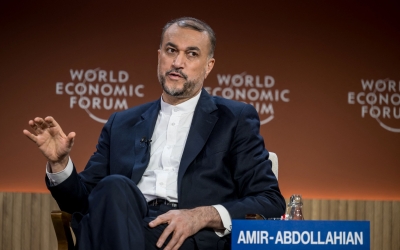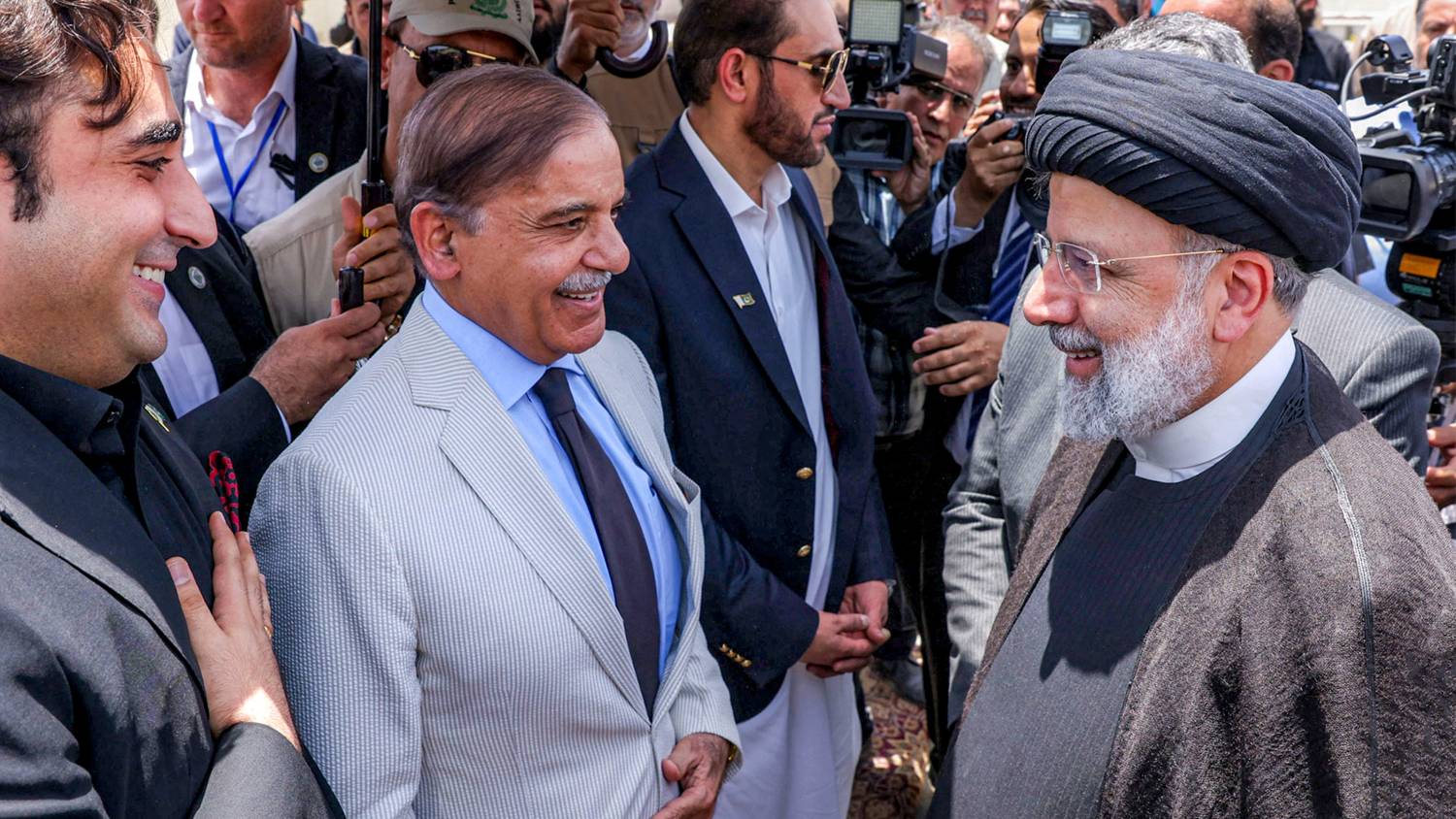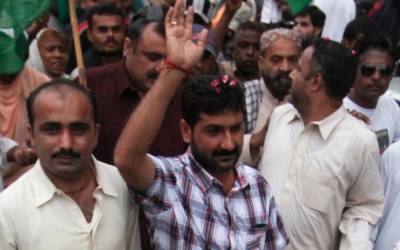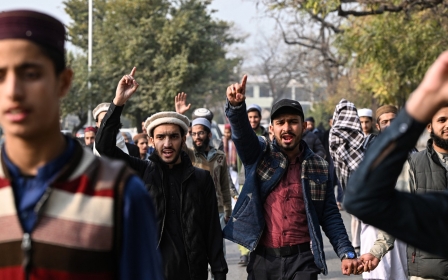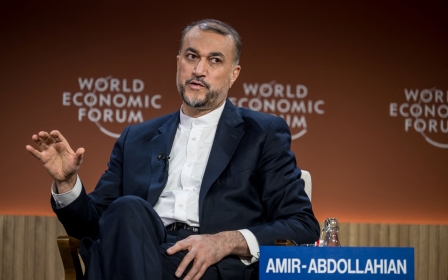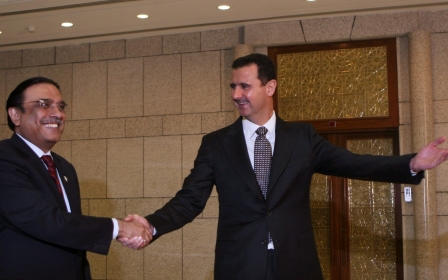Why did Pakistan and Iran bomb each other and then become friends again?
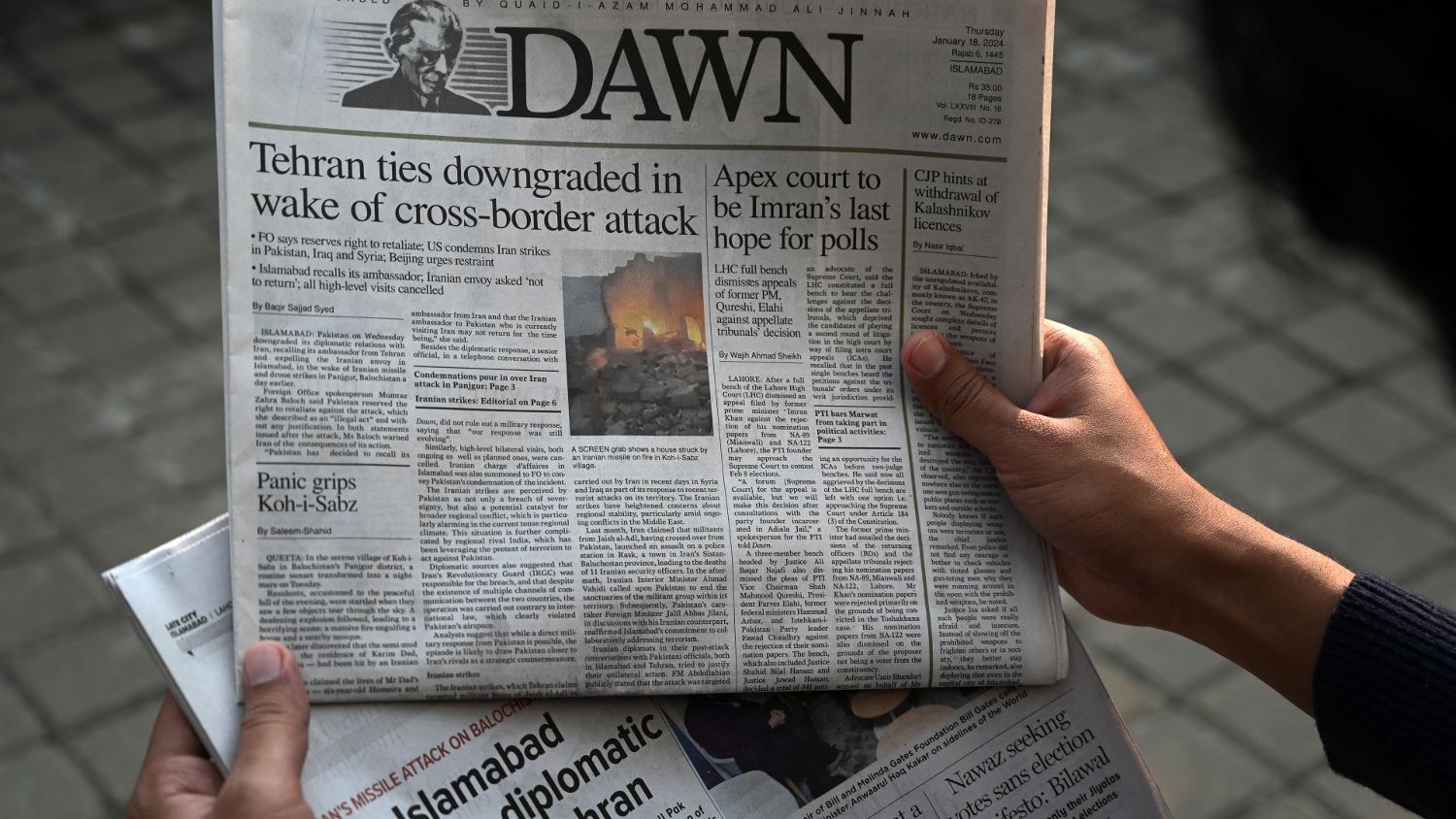
The recent tit-for-tat missile attacks between Iran and Pakistan have swiftly shifted from heightened aggression to a seemingly coordinated de-escalation, leaving analysts puzzled about the underlying motivations and future implications.
This rapid change follows a series of events that began on 16 January with an Iranian missile strike in the border town of Panjgur in the Balochistan province of Pakistan, targeting alleged sites of Jaish al-Adl, an Iranian Sunni militant group accused of carrying out attacks on Iranian security forces in Iran’s Sistan-Baluchestan province.
This prompted Pakistan to recall its ambassador from Tehran and retaliate within 48 hours, striking alleged hideouts of Pakistani separatist groups, such as the Baloch Liberation Front and the Baloch Liberation Army.
Both groups are accused of targeting Pakistani security forces and China's Belt and Road Initiative projects in Pakistan, and in the Iranian bordering district of Saravan in the Sistan-Baluchestan province.
These attacks marked the first direct assaults on each other's territory and the first time Iranian soil was targeted by a missile since the 1988 Iran-Iraq war.
New MEE newsletter: Jerusalem Dispatch
Sign up to get the latest insights and analysis on Israel-Palestine, alongside Turkey Unpacked and other MEE newsletters
Why the sudden shift?
While initially interpreted as a display of regional muscle, analysts increasingly believe Iran's air strikes were driven primarily by domestic anxieties.
Iran’s air strikes come just weeks after the 3 January bombing at a memorial for top Iranian military commander Qassem Soleimani, on the fourth anniversary of his death by a US drone strike. Islamic State Khorasan Province (ISKP), the Islamic State’s regional affiliate for Afghanistan and Pakistan, has claimed responsibility for the deadliest attack, which killed over 100 people, Tehran has experienced in recent years in Kerman city.
'Iran's air strike seems like a quick move to calm down its own people by showing off its military strength'
- Iftikhar Firdous, The Khorasan Diary
The ISKP attack was believed to be the deadliest militant attack in Iran since its 1979 Islamic Revolution.
Iran's attack on Pakistan took place less than a day after it launched several strikes on Iraq and Syria. Experts said that Iran's air strikes might be part of a series of reprisals against perceived enemies, following the ISKP attack.
“Following the ISIS-K bombing in Kerman and amid pressure from the US and UK in Yemen, Iran's strikes in Syria, Iraq, and Pakistan constitute a power display, with the sanction-hit country sending a signal to Washington," Iftikhar Firdous, director of The Khorasan Diary, an Islamabad-based research platform focusing on regional conflict, told Middle East Eye.
“Iran's air strike seems like a quick move to calm down its own people by showing off its military strength."
But experts also pointed out that Tehran’s strategy of "shoot first, think later" in Pakistan, Iraq and Syria shows a concerning trend of pushing Iranian problems into other countries.
Adding to the complexity, the Iranian attack came hours after Pakistani caretaker Prime Minister Anwar-ul-Haq Kakar met Iranian Foreign Minister Hossein Amir-Abdollahian in Davos on the sidelines of the World Economic Forum, as both nations held a joint naval exercise.
Two days before the attack, Iran's special envoy on Afghanistan, Hassan Kazemi Qomi, held talks with Pakistani officials in Islamabad on curbing cross-border terrorism and the ISKP threat. On 8 January, Qomi met Abdul Kabir, the Taliban deputy prime minister, in Kabul in this regard.
Discussions in Kabul about an Islamabad-Tehran-Taliban administration collaboration against ISKP were underway in Islamabad, according to an Islamabad-based Pakistani official familiar with Qomi's meetings.
“But Iran's air strike inside Pakistan threw a wrench in those talks, shaking everyone involved,” the official, requesting anonymity to speak freely, told MEE.
Analysts see a potential shift in strategy, suggesting the strikes might be linked to Iran's discovery of a connection between Jaish al-Adl and the ISKP bombers in Kerman. “Both groups share anti-Iran and anti-Shia ideologies, raising the possibility that Jaish al-Adl facilitated the entry of ISKP’s Tajik bomber into Iran for the attack,” said the Pakistani official.
In taking credit for the 3 January attack, the ISKP called on its supporters around the world to avenge the bloodshed in the Gaza Strip. But it also criticised Palestinian-aligned fighters such as Hamas and Hezbollah for receiving support from Iran.
Future of Pakistan-Iran relations
Relations between Iran and Pakistan have been generally peaceful and border skirmishes between the two sides have been minimal, or at least contained very close to the border and downplayed by both sides. This time, by announcing the attack, Iran broke from that trend.
Since the Iranian Revolution in Iran in 1979, ties between Iran and Pakistan have been functional, and in periods warm, but ultimately not particularly strong.
“Iran’s Shia theocratic regime has felt ideologically discordant with Sunni-majority Pakistan. Pakistani leadership has also at times viewed the relationship through a sectarian lens, though the salience of the sectarian rift is much less acute compared to Iran’s ties with countries in the Persian Gulf region, as Pakistan has a sizable Shia minority,” writes Asfandyar Mir, a senior expert at the United States Institute of Peace, in his recent commentary for his institute.
Shia Muslims make up anywhere from 15-20 percent of Pakistan's Muslim population, totalling around 32-42 million people.
Also on many foreign affairs issues, Iran and Pakistan fall into opposing blocs. Pakistan is aligned with two of Iran’s chief adversaries, the United States and the Gulf States, particularly Saudi Arabia and the United Arab Emirates, Mir said.
Elections in Pakistan are set for 8 February, while in Iran, elections are scheduled for March.
“While Pakistan’s political milieu is a divided space that has brought Pakistan's establishment to the brink of public criticism, the response to Iran’s strikes inside its territory will serve as a temporary respite with public anger vented at the neighbouring Iran,” said Firdous.
While Tehran and Islamabad work to normalise ties with Iranian Foreign Minister Amir-Abdollahian, set to visit Islamabad on 29 January, some analysts are concerned that sectarian groups may be exploited as a pressure tool.
Iran's attempt to export its Shia revolution to Sunni-majority Pakistan during the 1980s was met with resistance from the then-military regime of Zia ul-Haq, who initiated his own Islamisation campaign. This period witnessed heightened sectarian tensions.
During the 1990s, Saudi-funded Sunni and Iranian-funded Shia armed groups in Pakistan clashed, leading to a period of violent sectarianism. Even today, targeted faith-based killings continue.
“Recent China-brokered rapprochement between Saudi Arabia and Iran had helped diminish sectarian tensions in Pakistan,” Muhammad Israr Madani, head of the Islamabad-based International Religious Council for Religious Affairs, told MEE.
However, Madani warns that events such as air strikes by Iran have the potential to exacerbate existing mistrust and animosity between the two sects, creating an environment conducive to violence.
Recent reports of the arrest of a "terrorist trained by a foreign country" in Karachi, accused of an assassination attempt on a top Pakistani Sunni cleric in Karachi, among other militant activities, have complicated the situation. Pakistani counter-terrorism officials, while cautious not to directly name Iran, linked the suspect to the Zainabiyoun Brigade, an Iranian-backed militia known for recruiting Pakistani Shias to fight alongside Bashar al-Assad's forces in Syria.
This incident raises concerns about potential external actors exploiting sectarian divisions for their own agendas.
“To be blunt, many ordinary Pakistanis admire Iran for challenging the West and supporting the Palestinian cause. But they also hold it responsible for sectarianism, and violating Pakistan’s sovereignty is a red line,” Adam Weinstein, deputy director of the Quincy Institute's Middle East programme, told MEE.
“Iran has just sacrificed a lot of goodwill with Pakistan for minimal security gains.
A web of Baloch grievances
Iran and Pakistan have engaged in air attacks on each other’s territories, focusing on armed groups along their extensive 900km-long porous border, citing the need to safeguard their respective national security.
The Sistan and Baluchestan Province of Iran has a history of instability and armed conflict.
Kiyya Baloch, a journalist and researcher specialising in the region, highlighted that the two million largely Sunni Muslim Baluch residents in the province have faced persistent racist persecution and discrimination within predominantly Shia and Persian-speaking Iran.
Even before the Iranian revolution in 1979, Baloch groups were in conflict with the Iranian monarchy, led by Mohammad Reza Shah Pahlavi, according to Baloch.
“After the revolution, several insurgent movements emerged, fighting against Tehran to secure political and economic rights for the ethnic Baluch and Sunni population in Iran,” Baloch told MEE.
Initially secular, these movements transformed into more religious entities during the 1990s, influenced in part by how the Iranian state managed relations with the Baluch community, according to Baloch.
Iran accuses Jaish al-Adl, which operates across the border and has launched attacks on Iranian targets. “The group has taken shelter in some parts of Pakistan’s Balochistan province. We’ve talked with Pakistani officials several times on this matter,” Iran’s Foreign Minister Hossein Amirabdollahian told media in Davos after Tehran carried out the attack.
In December, Jaish al-Adl claimed credit for an attack on a police station in the Rask area in Sistan-Baluchestan, killing 11 security personnel. At the time, Ahmad Vahidi, Iran's interior minister, criticised Pakistan’s border security measures, alleging that militants crossed the frontier into Iran to carry out the attack.
Simultaneously, Pakistan is grappling with its own Baloch separatist insurgency and often accuses Iran of harbouring Pakistani separatist groups, including the Baloch Liberation Army and Baloch Liberation Front. These groups target Pakistani military personnel and China's Belt and Road Initiative projects in Pakistan. Unlike Iran, Baloch militancy in Pakistan is predominantly secular.
In November, heavily armed militants ambushed a Pakistani military convoy in Balochistan’s Gwadar district, where China runs a deep-water Arabian Sea port, killing at least 14 soldiers.
“Whether Iranian militant groups like Jaish-al Adl, or Pakistani proscribed groups, these actors thrive on chaos and instability. Escalation only strengthens their narrative and recruitment potential,” Shamsudin Shigri, a Karachi-based academic specialising in Middle Eastern conflict studies, told MEE.
“Collaborative intelligence sharing, joint initiatives to address the root causes of cross-border extremism, and strengthened border security measures could be far more effective in tackling the problem," he emphasised.
Middle East Eye delivers independent and unrivalled coverage and analysis of the Middle East, North Africa and beyond. To learn more about republishing this content and the associated fees, please fill out this form. More about MEE can be found here.


